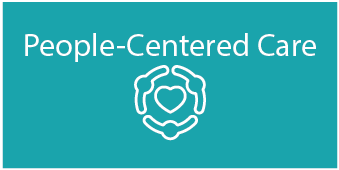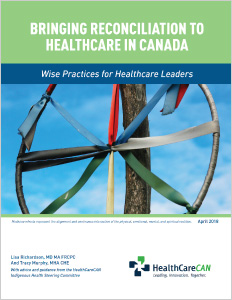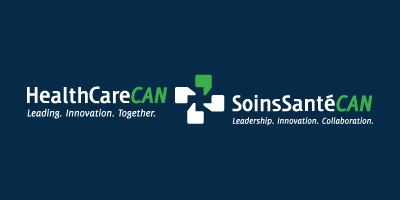This website uses cookies so that we can provide you with the best user experience possible. Cookie information is stored in your browser and performs functions such as recognising you when you return to our website and helping our team to understand which sections of the website you find most interesting and useful.
NOTE: This is an archived page and is no longer being updated. For up-to-date information on our work, please use the main navigation menu, or click here
Leading Practices in Cultural Safety
HealthCareCAN is working with members, and key stakeholders (Indigenous and health organizations) to further the advancement of the Truth and Reconciliation Commission’s health-related recommendations. HealthCareCAN is a member of the Indigenous Health Alliance, which will be addressing the TRC’s Calls to Action related to health.
Our members leading system transformation
FACING RACE: What are Ottawa hospitals doing to support and reflect the BIPOC communities they serve?
June 17, 2021
Thunder Bay hospital asks patients if they wish to self-identify in effort to better address health needs
April 7, 2021
First Cree patient joins McGill patient committee aimed at improving hospital experience
March 31, 2021
Manitoba Keewatinowi Okimakanak and Northern Health partner up to combat racism in health care
March 30, 2021
Centre for Addiction and Mental Health launches First Nations, Inuit and Métis wellness centre
November 12, 2020
How can you be healthy if you're not treated fairly? Why health care in Labrador is changing
November 3, 2020
Shíshálh woman to lead research on COVID response for Vancouver’s urban Indigenous population
August 19, 2020
Ontario health providers collaborate to provide culturally-relevant mental wellness services to Indigenous peoples
August 11, 2020
These mental health advocates are working on an alternative to police intervention when someone is in crisis. They say ‘all of a sudden’ people are interested
August 3, 2020
Province introduces new supports for remote, rural and Indigenous communities during COVID-19 pandemic
April 20, 2020
The Sheshatshiu suicide crisis 'didn't happen overnight.' How does the community break the cycle?
November 5, 2019
Hospital staff in B.C. village learn Gitxsan language to connect with Indigenous patients
November 3, 2019
New program aims to improve care for Indigenous women by having health professionals reflect on their biases
October 1, 2019
CHA Learning – helping you build a strong people-centred care culture in your organization
CHA Learning, HealthCareCAN‘s professional development division, has developed the People-Centred Care program to enable healthcare professionals at all levels to lead healthcare change and improvement in partnership with patients, families and providers. Gain skills and knowledge to enable people-centred care, effective engagement activities and positive healthcare experiences with concrete, evidence-based and practical tools that are immediately applicable.
The Role of Food in Healthcare
This webinar, hosted by HealthCareCAN, with support from the J.W. McConnell Family Foundation, discusses our research and preliminary findings on the role of food in healthcare, and includes a presentation by a representative from IWK Health Centre and the Nova Scotia Health Authority, who have made significant progress in this area.
Bringing Reconciliation to Healthcare in Canada: Wise Practices for Healthcare Leaders
This HealthCareCAN Report discusses critical issues facing Indigenous Peoples in Canada, and the role that Canadian health leaders play in helping to close the health gap. It also presents wise practices for health leaders and organizations to address the health-related Calls to Action of the Truth and Reconciliation Commission of Canada (TRC) based on a literature review, interviews with key stakeholders, and case studies of several health care organizations.
10 Wise Practices for Healthcare Leaders
Health leaders should consider the following wise practices to guide them in their work to advance reconciliation. The focus of these wise practices is to effect change at the level of the health care organization or institution. Furthermore, leaders of organizations can advocate alongside their Indigenous partners for system-level changes to policy, funding, and governance.
1
.
2
.
3
.
4
.
5
.
6
.
7
.
8
.
9
.
10
.
For more detailed guidance and other suggestions, health leaders should review the section in the above report on Implementing the TRC’s Calls to Action.
Related Reading
HealthCareCAN Submission 2022 Federal Budget
HealthCareCAN's 2022 prebudget brief | August 19, 2021
By Tracy Murphy, Consultant, on behalf of HealthCareCAN | May 30, 2017
Pathways to Innovation and Change: A report on the 2016 National Health Leadership Conference
HealthCareCAN | September 14, 2016
Lafontaine: Time for an Indigenous health revolution in Canada
The Ottawa Citizen | June 20, 2016



